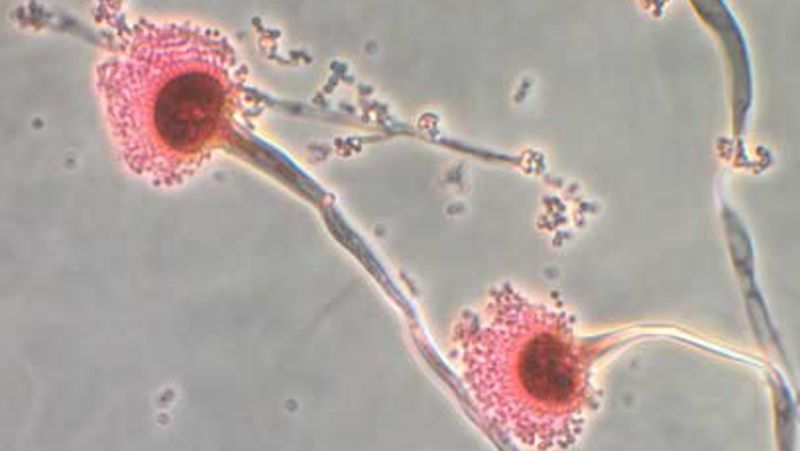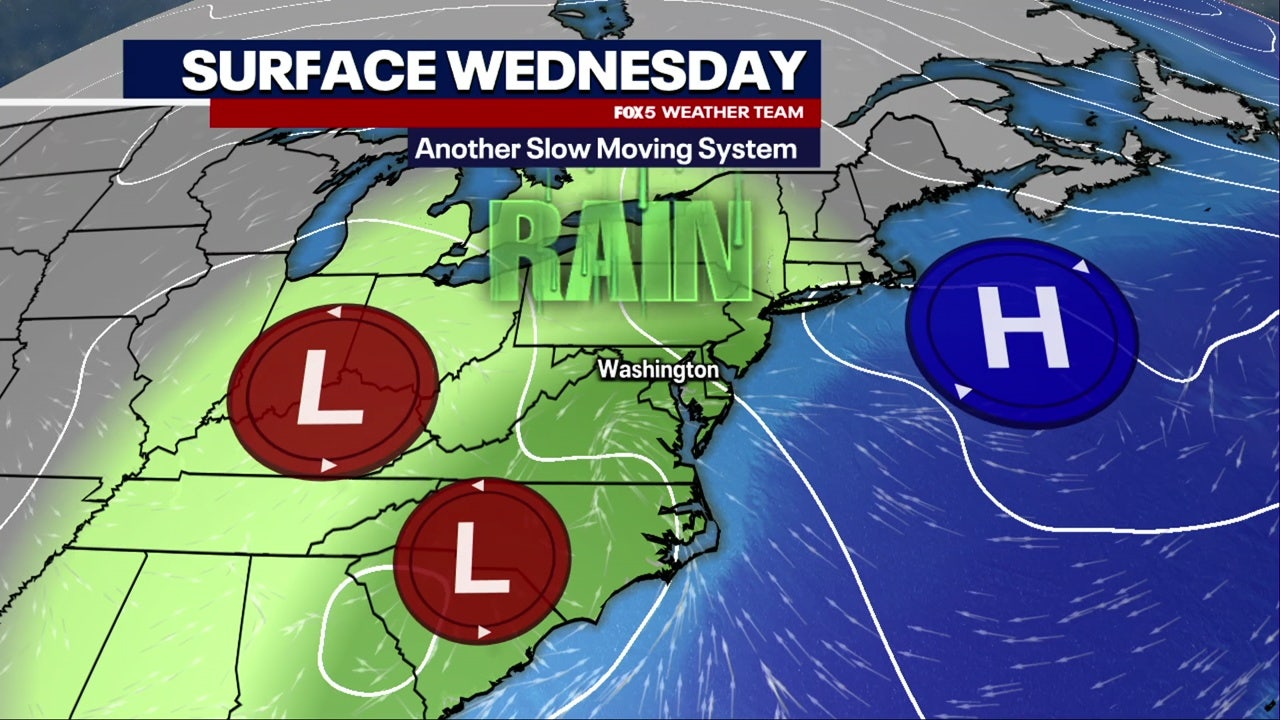Internal Fungus Infections: A Rising Threat In A Changing Climate

Welcome to your ultimate source for breaking news, trending updates, and in-depth stories from around the world. Whether it's politics, technology, entertainment, sports, or lifestyle, we bring you real-time updates that keep you informed and ahead of the curve.
Our team works tirelessly to ensure you never miss a moment. From the latest developments in global events to the most talked-about topics on social media, our news platform is designed to deliver accurate and timely information, all in one place.
Stay in the know and join thousands of readers who trust us for reliable, up-to-date content. Explore our expertly curated articles and dive deeper into the stories that matter to you. Visit Best Website now and be part of the conversation. Don't miss out on the headlines that shape our world!
Table of Contents
Internal Fungus Infections: A Rising Threat in a Changing Climate
The world is changing, and not just in ways readily visible. A silent, insidious threat is emerging, one amplified by our shifting climate: internal fungal infections. What were once relatively rare occurrences are becoming increasingly prevalent, posing a significant challenge to global health systems. This rise is directly linked to several factors exacerbated by climate change, creating a complex and concerning scenario for the future.
The Growing Problem of Invasive Fungal Diseases
Invasive fungal diseases (IFDs), those that spread beyond their initial site of infection, are already responsible for significant morbidity and mortality worldwide. The Centers for Disease Control and Prevention (CDC) estimates hundreds of thousands of cases annually in the United States alone, with many more going unreported globally. However, the true scale of the problem is likely far greater, masked by difficulties in diagnosis and a lack of robust surveillance systems in many parts of the world.
Climate Change: A Perfect Storm for Fungal Growth
The link between climate change and the rise of IFDs is multifaceted:
- Increased Temperatures: Warmer temperatures create ideal conditions for fungal growth and proliferation. Many fungi thrive in higher humidity and temperatures, expanding their geographical range and increasing the likelihood of human exposure.
- Extreme Weather Events: Flooding and hurricanes disrupt ecosystems, creating breeding grounds for fungal spores and increasing the risk of contamination in water sources and soil. This can lead to increased exposure through inhalation or skin contact.
- Changes in Vector Distribution: Some fungal infections are transmitted through insect vectors like mosquitoes. Climate change alters the habitats and distribution patterns of these vectors, potentially expanding the reach of fungal diseases to new regions.
- Weakened Immune Systems: Extreme heat events and air pollution, both exacerbated by climate change, can compromise the immune system, making individuals more susceptible to fungal infections.
High-Risk Populations and Emerging Threats
Certain populations are particularly vulnerable to IFDs:
- Immunocompromised individuals: People with weakened immune systems, such as those undergoing chemotherapy, organ transplant recipients, or those with HIV/AIDS, are at significantly higher risk.
- Individuals with pre-existing lung conditions: Lung diseases like asthma and cystic fibrosis increase susceptibility to respiratory fungal infections.
- Elderly individuals: The elderly often have weakened immune systems, making them more prone to infections.
Furthermore, the emergence of drug-resistant fungal strains poses a serious threat. The overuse of antifungal medications in agriculture and medicine has contributed to the development of resistance, making treatment increasingly challenging.
What Can Be Done?
Addressing the rising threat of internal fungal infections requires a multi-pronged approach:
- Strengthening surveillance systems: Improved monitoring and reporting of IFDs are crucial for understanding the true scale of the problem and tracking emerging trends.
- Developing new antifungal drugs: Research and development of novel antifungal agents are urgently needed to combat drug-resistant strains.
- Improving diagnostic tools: More rapid and accurate diagnostic tests are crucial for timely intervention.
- Public health education: Raising awareness about the risk factors and prevention strategies is essential for protecting vulnerable populations.
- Mitigation of climate change: Addressing climate change through reduced greenhouse gas emissions is paramount to minimizing the conditions that favor fungal growth.
The rise of internal fungus infections represents a serious and growing public health concern. By understanding the link between climate change and fungal disease, and by implementing proactive measures, we can work towards mitigating this emerging threat and protecting vulnerable populations. This requires international collaboration, increased funding for research, and a renewed focus on preventative strategies. The future of global health depends on it.

Thank you for visiting our website, your trusted source for the latest updates and in-depth coverage on Internal Fungus Infections: A Rising Threat In A Changing Climate. We're committed to keeping you informed with timely and accurate information to meet your curiosity and needs.
If you have any questions, suggestions, or feedback, we'd love to hear from you. Your insights are valuable to us and help us improve to serve you better. Feel free to reach out through our contact page.
Don't forget to bookmark our website and check back regularly for the latest headlines and trending topics. See you next time, and thank you for being part of our growing community!
Featured Posts
-
 A Thousand Year Old Mystery Anglo Saxon Vessels Contents Revealed
May 26, 2025
A Thousand Year Old Mystery Anglo Saxon Vessels Contents Revealed
May 26, 2025 -
 Bbc Bicycle Stolen In The Hague A Personal Account
May 26, 2025
Bbc Bicycle Stolen In The Hague A Personal Account
May 26, 2025 -
 Gt Vs Csk Ipl 2025 5 Key Batsmen To Look Out For
May 26, 2025
Gt Vs Csk Ipl 2025 5 Key Batsmen To Look Out For
May 26, 2025 -
 Cornell And Maryland To Battle For Ncaa Mens Lacrosse Championship
May 26, 2025
Cornell And Maryland To Battle For Ncaa Mens Lacrosse Championship
May 26, 2025 -
 Twelve Injured After Hot Air Balloon Incident In Mexico
May 26, 2025
Twelve Injured After Hot Air Balloon Incident In Mexico
May 26, 2025
Latest Posts
-
 Severe Weather Incoming Dc Area Faces Heavy Rain And Thunderstorms Wednesday
May 29, 2025
Severe Weather Incoming Dc Area Faces Heavy Rain And Thunderstorms Wednesday
May 29, 2025 -
 England And West Indies Clash In First Odi Live Score And Commentary
May 29, 2025
England And West Indies Clash In First Odi Live Score And Commentary
May 29, 2025 -
 Trumps Anger At Putin Mounts New Russia Sanctions On The Table
May 29, 2025
Trumps Anger At Putin Mounts New Russia Sanctions On The Table
May 29, 2025 -
 High Profile Escapes Examining The Psychology Behind Manhunt Obsession
May 29, 2025
High Profile Escapes Examining The Psychology Behind Manhunt Obsession
May 29, 2025 -
 French Open Day 5 Predictions Mens Singles Key Matches And Outcomes
May 29, 2025
French Open Day 5 Predictions Mens Singles Key Matches And Outcomes
May 29, 2025
